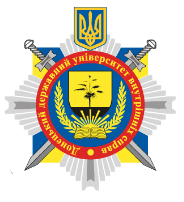A LOOK AT THE DOCTRINE OF NATURAL LAW THROUGH THE THEOLOGICAL PRISM OF THE MIDDLE AGES
DOI:
https://doi.org/10.32782/2523-4269-2022-80-3-13-16Keywords:
natural law, positive law, reason, theology, Christianity, ideal.Abstract
The specifics of the interpretation of the phenomenon of natural law in the works of outstanding thinkers of the Middle Ages were studied, and the medieval interpretation of natural law was determined by Christianity, as an expression of God’s Wisdom and justice as a higher moral precept. Considered related to the formation of the main strategic principles of the Christian norm. The problems of interpreting the principles of natural law in the works of theologians of the Middle Ages are demonstrated. It is analyzed that the main merit of Christian law-making is the selection of natural law as a criterion of positive norms, the creation of a hierarchical order of the legal system, and natural law is a manifestation of the eternal, universal law that expresses the Divine mind. The article examines the issue related to the form of the main principles of Christian law-making. Attention is drawn to the special attitude of Christians to the Bible as the primary source of normativity and the development of a special method of legal analysis and synthesis, with the help of which the medieval law professor formulated the basic principles of law. It was noted that the most characteristic feature of philosophical searches became the idea of God, who absolutely rises above nature, which in itself does not possess any laws and lives only to the extent that God wants it. It is also shown that in the Middle Ages the idea of natural law had a theocratic character, and its system was based on the developments of Roman lawyers and the truths of the Holy Scriptures. The article is devoted to the problems of interpreting the principles of natural law in the works of theologians of the Middle Ages. In the Middle Ages, the concept of natural law acquired mainly a narrow theoretical and theological orientation, which supplemented natural law views with a moral and philosophical color. However, gradually consideration of natural law as a manifestation of divine will is replaced by an analysis of the legal nature of natural law and its comparison with positive law.
References
Августин А. О граде Божьем. Минск : Харвест, 2000. 1296 с.
Боргош Ю. Фома Аквинский / пер. с польск. М. Гуренко. Москва : Мысль, 1975. 183 с.
Жеребило І. Проблеми сенсу життя людини в українській середньовічній філософії : монографія. Львів, 2004. 223 с.
Коплстон Ф. Аквинат. Введение в философию великого средневекового мыслителя / пер. В. Гайденко. Долгопрудный : Вестком, 1999. 275 с.
Нерсесянц В. Право и закон (из истории правовых учений). Москва : Наука, 1983. 366 с.
Святий Августин. Сповідь / пер. з лат. Ю. Мушака. Київ : Основи, 1999. 319 с.
Аквинский Ф. О правлении государей / пер. Н. Срединской. Политические структуры эпохи феодализма в Западной Европе (VI–XVII вв.) : сборник статей. Ленинград : Наука, 1990. С. 217–245.
Удальцова З. Византийская культура / отв. ред. Е. Гутнова. Москва : Наука, 1988. 288 с.
Финнис Дж. Естественное право и естественные права. Москва ; Челябинск : ИРИСЭН ; ИД «Социум», 2016. 560 с.





